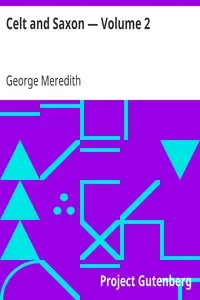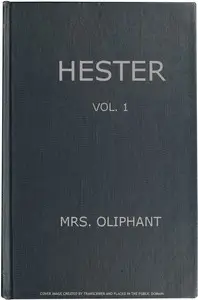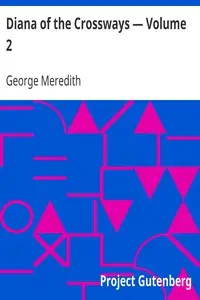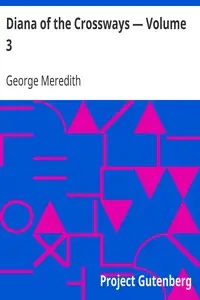"Celt and Saxon — Volume 2" by George Meredith is a story set in an older time that looks at how different groups of people, the Celts and Saxons, deal with each other, and how this affects who they are. Mrs. Adister O'Donnell is trying to write a letter that won’t upset anyone, and she asks for help from Patrick O'Donnell, showing how important family is to her. We meet Miss Jane Mattock, who is both tough and kind, while she talks about what she wants from her career and what she believes in. The book weaves together the lives of these characters, suggesting that there will be disagreements and connections as they struggle with their cultures and what they think is right.

Celt and Saxon — Volume 2
By George Meredith
In a world divided by heritage, characters navigate family, business, and morality as cultural tensions threaten to unravel their intricate connections.
Summary
About the AuthorGeorge Meredith was an English novelist and poet of the Victorian era. At first, his focus was poetry, influenced by John Keats among others, but Meredith gradually established a reputation as a novelist. The Ordeal of Richard Feverel (1859) briefly scandalised Victorian literary circles. Of his later novels, the most enduring is The Egoist (1879), though in his lifetime his greatest success was Diana of the Crossways (1885). His novels were innovative in their attention to characters' psychology, and also portrayed social change. His style, in both poetry and prose, was noted for its syntactic complexity; Oscar Wilde likened it to "chaos illumined by brilliant flashes of lightning". Meredith was an encourager of other novelists, as well as an influence on them; among those to benefit were Robert Louis Stevenson and George Gissing. Meredith was nominated for the Nobel Prize in Literature seven times.
George Meredith was an English novelist and poet of the Victorian era. At first, his focus was poetry, influenced by John Keats among others, but Meredith gradually established a reputation as a novelist. The Ordeal of Richard Feverel (1859) briefly scandalised Victorian literary circles. Of his later novels, the most enduring is The Egoist (1879), though in his lifetime his greatest success was Diana of the Crossways (1885). His novels were innovative in their attention to characters' psychology, and also portrayed social change. His style, in both poetry and prose, was noted for its syntactic complexity; Oscar Wilde likened it to "chaos illumined by brilliant flashes of lightning". Meredith was an encourager of other novelists, as well as an influence on them; among those to benefit were Robert Louis Stevenson and George Gissing. Meredith was nominated for the Nobel Prize in Literature seven times.













